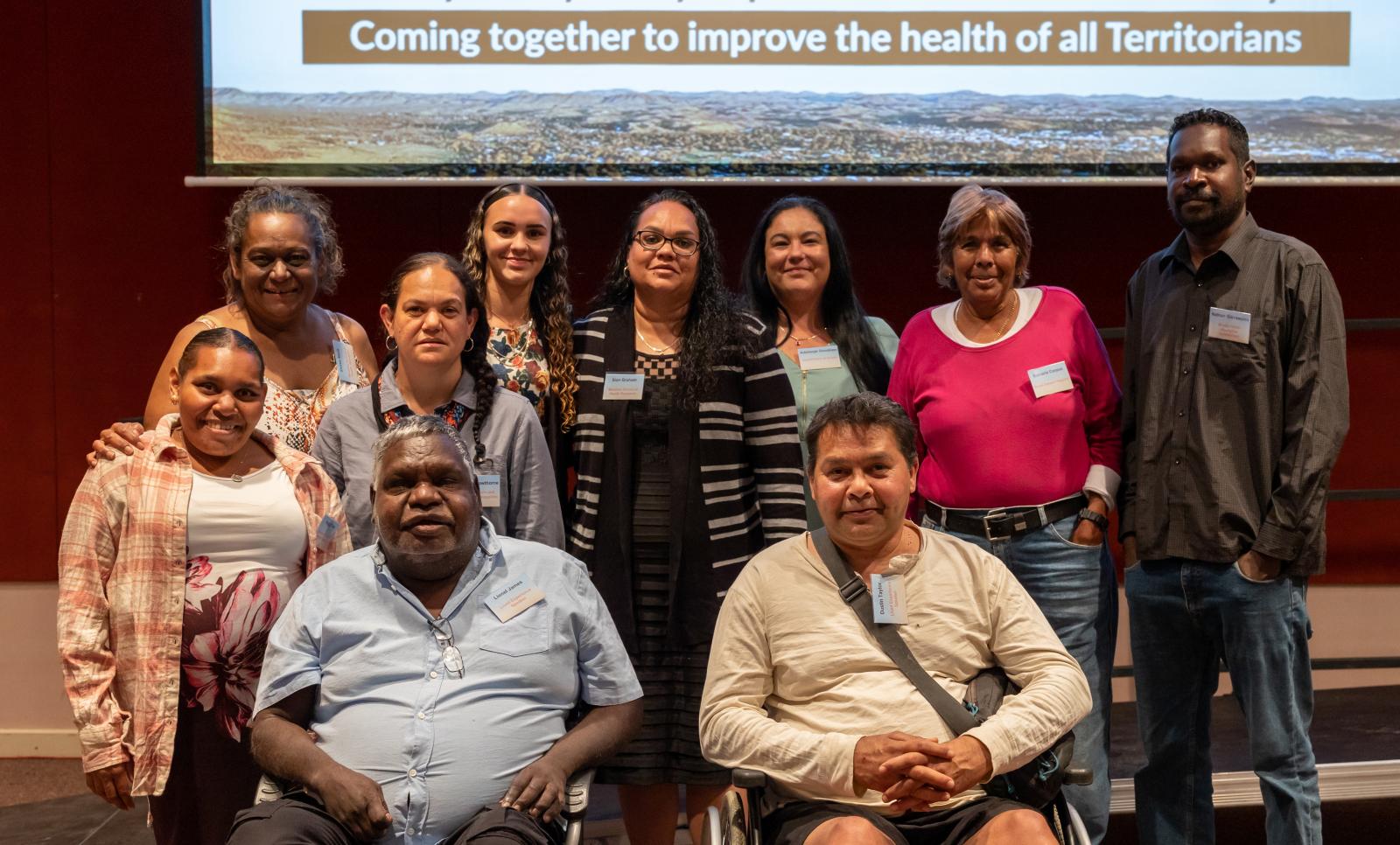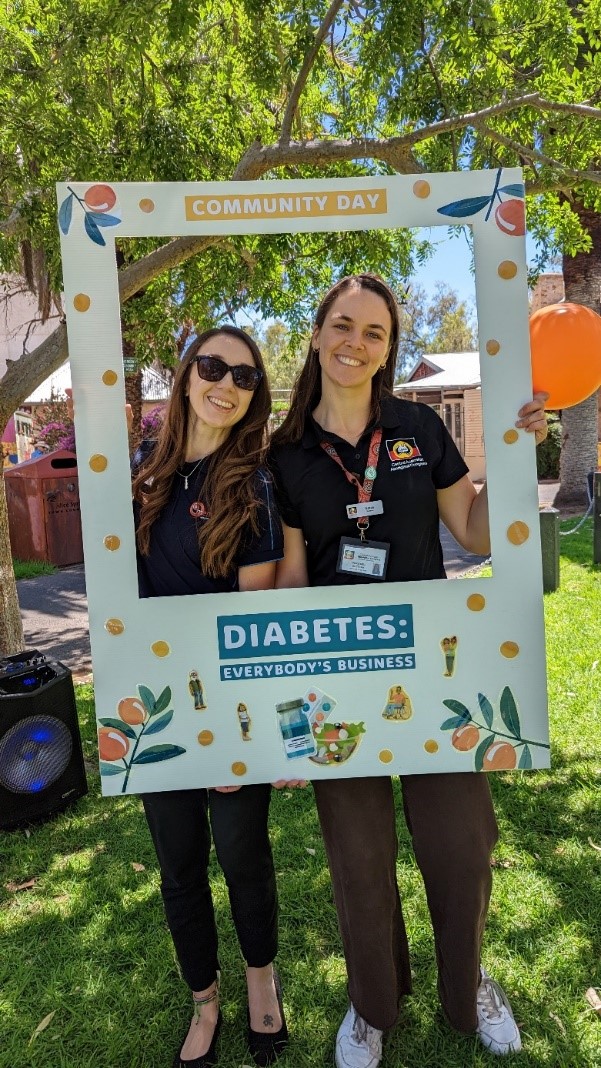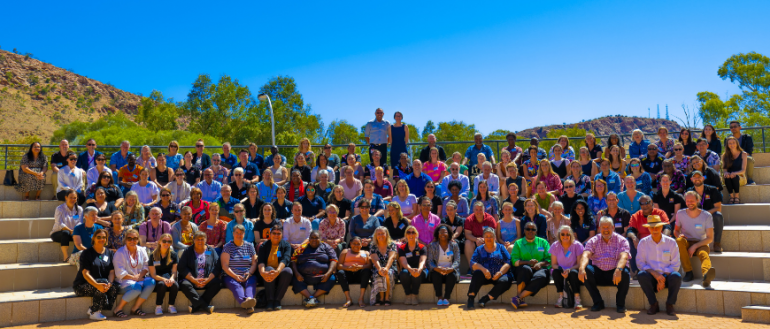Image caption: Diabetes researchers, health professionals and community members gather at the NT Diabetes Summit in Alice Springs.
A roadmap to address the diabetes epidemic in remote Northern Territory communities has been endorsed by diabetes experts, health professionals and Aboriginal community members.
New research, published earlier this year, showed rates of diabetes among Aboriginal people in remote Northern Territory communities are some of the highest in the world and getting worse—with the condition affecting more people, year after year.
Lead author Dr Matthew Hare is an Endocrinologist at Royal Darwin Hospital and Senior Research Officer at Menzies School of Health Research (Menzies). He said the burden of type 2 diabetes among Aboriginal people in remote communities of the Territory is among the highest reported of any population globally. The findings of the research were particularly concerning for the Central Australian region, with up to 40 per cent of adults living with diabetes.
The DIABETES across the LIFECOURSE: Northern Australia Partnership’s Lead in Stakeholder Engagement, Norlisha Bartlett, said action is needed.
“The outcomes of this research were shocking and there is an urgent need to introduce preventative strategies to address the crisis.”
The idea for a roadmap to introduce preventative strategies came out of a 2-day NT Diabetes Summit and Community Day in Alice Springs.
The event was coordinated by the Diabetes Across the Lifecourse Northern Australia Partnership within Menzies, led by Professor Louise Maple-Brown, and NT Health’s Dr Sean Taylor. The summit was a collaborative event between Menzies, NT Health, the NT Primary Health Network, Aboriginal Medical Service Alliance Northern Territory (AMSANT) and the Australian Government’s Department of Health and Aged Care.
The first day was developed and led by the DIABETES Across the LIFECOURSE: Northern Australia Partnership Aboriginal and Torres Strait Islander Advisory Group (ATSIAG) and showcased Aboriginal organisations and community members.
“We heard from 13 Aboriginal and Torres Strait Islander people, including researchers and 5 lived experience speakers,” said Mrs Bartlett.
“They shared stories of diabetes complications, intergenerational diabetes, youth type 2 diabetes and diabetes in pregnancy. In the afternoon researchers from within the Diabetes Lifecourse Partnership presented data around the impacts of intergenerational trauma and racism.”

Image caption: Lived experience speakers present at the NT Diabetes Summit.
There was also a community event which brought together the community from Alice Springs to come together to discuss diabetes and its impacts on the ground for people in Alice Springs.
The second day led by NT Health was a multi-sector and organisation-wide collaboration, discussion and action planning session.
“There were so many positive outcomes which came out from this summit and community day,” said Mrs Bartlett.
“An important factor was how everyone from diabetes experts, health professionals, and government and non-government representatives to people in the community affected by type 2 diabetes came together and not only listened but were proactive in wanting to action change.”
“What was amazing, however, was how much Aboriginal community members of Alice Springs, and organisations across the NT, and government and non-government representatives got on board at the summit and community day to address these issues and create an action plan.”
“Everyone there showed their commitment to the importance of working in true partnership with Aboriginal and Torres Strait Islander people to reduce the stigma of diabetes and to design prevention and management programs for type 2 diabetes.”
This resulted in the plan for a roadmap to improve the health of all Territorians. The progress of this road map will be presented at the 2023 Diabetes Lifecourse Annual Educational Symposium.
To find out more about the work Menzies is doing to prevent and manage diabetes, head to: Diabetes - Menzies

Image caption: Menzies School of Health Research staff supported diabetes education as part of the summit and community day in Alice Springs.

